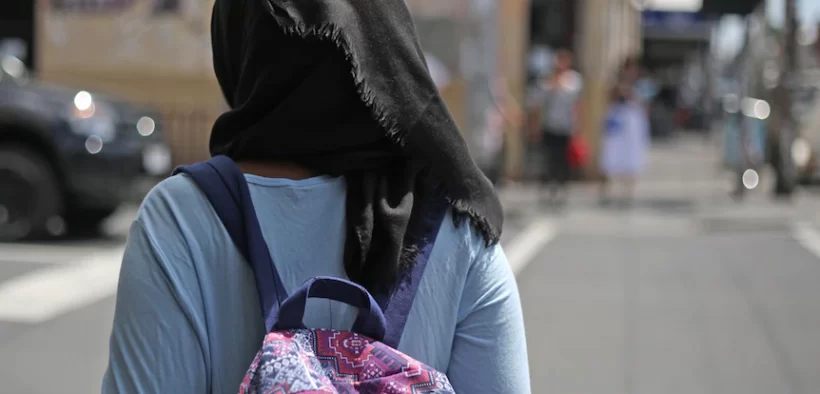Eighty per cent of Australian Muslims have experienced discrimination, new Australian Human Rights Commission report finds

The Australian Human Rights Commission report was released on Tuesday.(ABC News: Margaret Burin )
A new report has found 80 per cent of Australian Muslims have experienced prejudice or discrimination.
Key points:
- Australia’s Human Rights Commissioner Chin Tan wants national anti-racism campaigns and workplace programs
- The Home Affairs Department said it was considering the conclusions of the report and would spend $63 million on social cohesion programs
- Almost 65 per cent of survey respondents said they found Australian society welcoming
The overwhelming majority of those surveyed by the Australian Human Rights Commission said they had experienced unfavourable treatment based on religion, race or ethnicity.
Half of the respondents said they had experienced unfavourable treatment when dealing with law enforcement, while 48 per cent said they had experienced unfavourable treatment in the workplace or when seeking employment.
Australia’s Human Rights Commissioner Chin Tan said the survey was conducted in the wake of the Christchurch attacks, to better understand Australian Muslims’ experiences of hate and violence.
“The stories shared by Australian Muslim community members for this project have brought home to me that the undercurrents of religious discrimination, vilification and hate that manifested so horribly in the Christchurch attack are not an aberration,” he said.
“They are consistent with the experiences of Islamophobia and anti-Muslim hate that is routinely experienced in Australia.”
Threatening phone calls at workplace
Restaurateur Hana Assafiri said her staff at the Morrocan Soup Bar in Melbourne received a threatening Islamophobic phone call after she appeared on ABC TV’s Q+A program in the past few weeks.
“Somebody phoned my workplace and said, ‘is that your boss on the television? The one with the hair,'” she said.
“The women there didn’t know what to say.
“And they [the caller] said, ‘you f***ing Muslims tell her to shut the f*** up and go back to your f***ing Muslim home.'”
Islam wasn’t one of the topics on the program on the night she appeared, but Ms Assafiri’s religion and Middle Eastern heritage was still used against her.
“Why would you even associate disagreeing with what I have to say with being Muslim and sending me back to — I don’t even know where ‘back to this Islamic place’ is, because this [Australia] is my home.”
Calls for national action against racism
Mr Tan said it was time for Australia to adopt a national anti-racism framework, which would include national education campaigns and programs for employers to offer their staff.
“It’s almost like crime,” he said.
“Can we stop crime? No, but we can do our best to eliminate it and build a better society.”
The ABC asked Migrant Services and Multicultural Affairs Minister Alex Hawke about the proposal and he referred enquiries to the Home Affairs Department.
A spokesperson for the department said the federal government would consider the commission’s report and invest $63 million in social cohesion programs.
The report from the Human Rights Commission also said that 63 per cent of those surveyed found Australia was a welcoming society.
Ms Assafiri said witnessing the relationship between her loyal customers and the many migrant women she has employed at her restaurants meant that she generally agreed.
“Whenever you find yourself losing heart and frustrated by the reality of reports like this, all you have to do is come to work,” she said.











